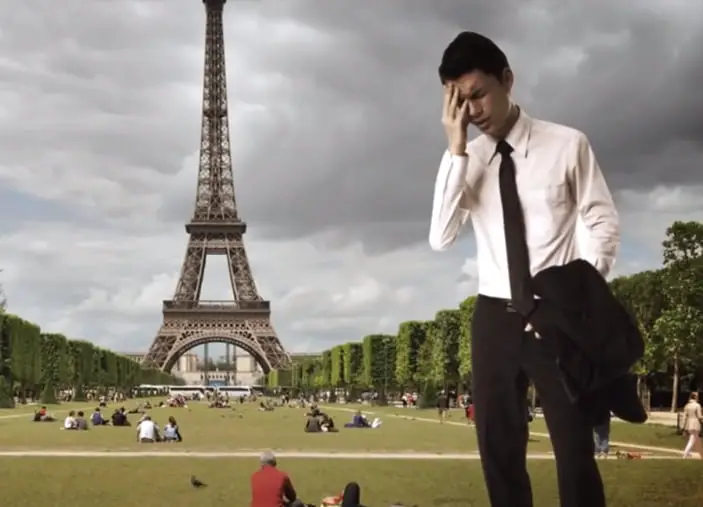By Amalia Theocharidou,
We all know Emily in Paris, the sensational Netflix series that has shaped many perceptions of the city of lights, as the colorful images and the flowery scenery have attracted many visitors from all around the world. As French tourism continues to grow, a syndrome known as the “Paris syndrome” is observed even more among the millions of people who spend their vacations there.
This mental syndrome refers to the cultural shock one comes across when one feels a huge disappointment after visiting Paris and realizing their unmet and ideal expectations aren’t true. This condition is so severe that it can lead to nausea, vomiting, and hallucinations, and it is mainly observed in Japanese tourists. This is explained by the realization that Asia and Europe consist of completely different ideals, as well as by the fact that Western European culture is presented as something magical and movie-like in the Asian regions. That’s why Japanese tourists are in shambles when they realize that the ideal thought of Paris being the fairytale they’d imagined has nothing to do with the city center they come across.

As Paris claimed the title of the rudest city in 2020, another difference of great importance with Japanese culture was spotted. In Japan, manners and kindness play an essential role not only in tourism but in everyday life and under any circumstances, in contrast to the French, who are considered posh to the point of looking down even at compatriots who aren’t from Paris. This behavioral system is one of the main ways to crash a Japanese person’s romanticizing of the French capital that has been created due to habit. Out of habit and stereotypical ways of thinking, people tend to create a standard image of specific cultures and people, blocking the contradicting reality and finally reaching the so-called cultural shock, the Paris syndrome, when they get there (Phelan, 2022).
As a result, a dozen Japanese tourists seek psychological help annually after returning to their homeland, as cases of psychoses have been observed, despite a great number of patients healing after a bit of therapy. Some extreme cases even refer to psychotic episodes and hallucinations, such as a man considering himself the French King Louis XIV and a woman creating a psychological fear of microwaves (Reuters, 2007).
As the world moves on with globalization and as generations become more technologically advanced, a reduction of the phenomenon can be easily observed. People now have access to the Internet and other ways of communication that allow them to explore a more realistic world sphere and to demolish their unrealistic standards. Furthermore, our times are shaped by an increasing interaction between Eastern countries and the Western world, which allows Asians to get to know the West on a better level. As Europe was always an actor of comparison, the set standard for most of the international players, it is understandable to justify the high standards that come along with its image. It is interesting to watch how technology as well as globalization can alter so much, to the point of putting an end to even psychological conditions that have troubled people in the past.
References
- Phelan, J. (2022). What is Paris syndrome? Retrieved from Live Science. Available here
- Reuters. (2007). “Paris syndrome” leaves Japanese tourists in shock. Available here




